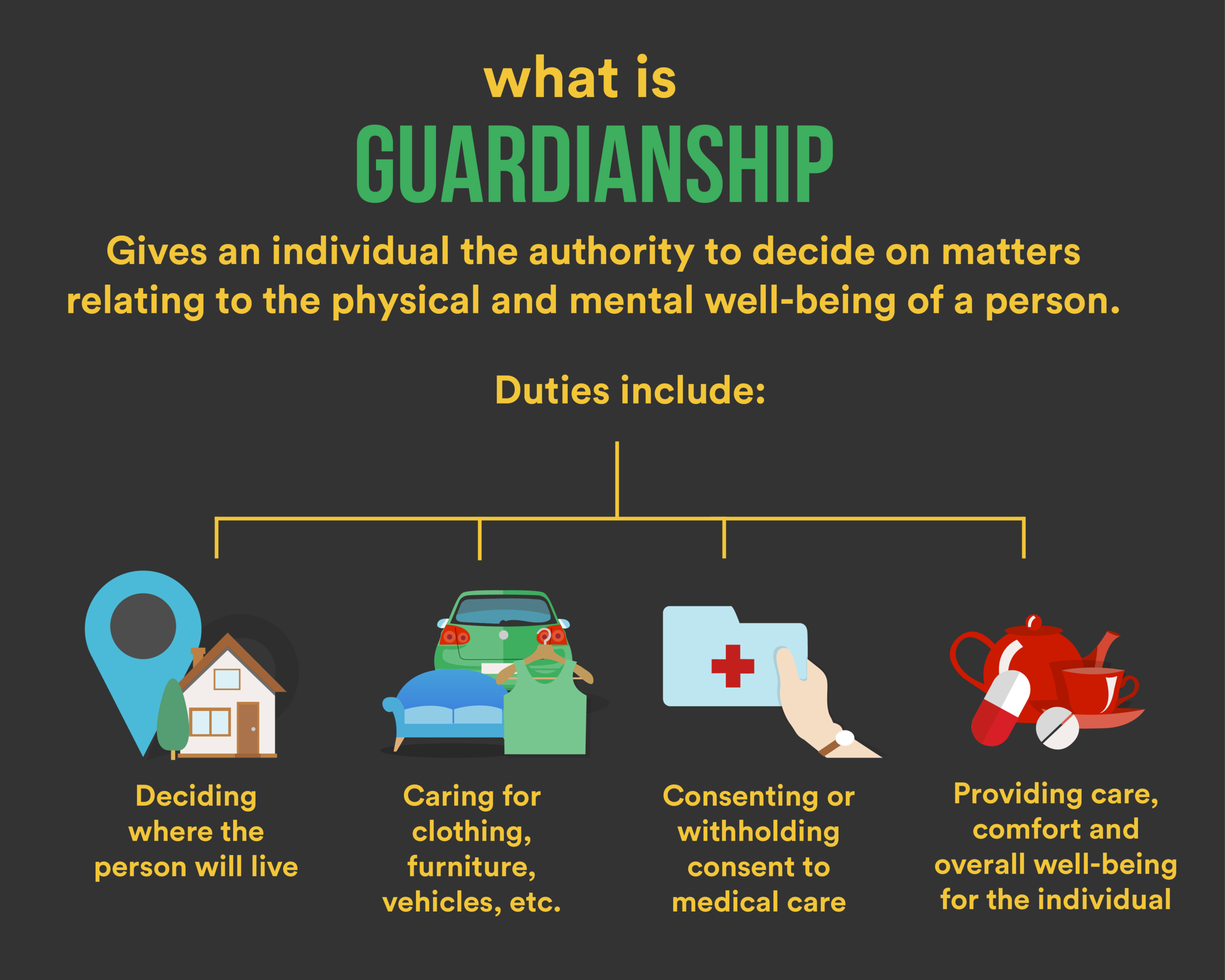Guardianship is a topic we hear about frequently on social media regarding celebrities and new movies, but what truly is it? Simply explained, a guardian is an individual or institution appointed by the court to care for an incapacitated person, called a ward, or for the ward’s assets. Here at Slonim Law we strive to provide the best service possible when it comes to these matters.
Let’s break this down a bit further.

Any adult Florida resident can serve as a guardian as long as they are capable of carrying out the duties and have not been convicted of a felony. A guardian who has authority over any property of a ward shall inventory the property, invest it wisely, use it for the ward’s support, and account for it by filing detailed annual reports with the court. In addition, the guardian must obtain court approval for certain financial transactions. The guardian of the ward’s person may exercise those rights that have been removed and delegated to the guardian, such as providing medical, mental and personal care services and determining the place and kind of residential setting best suited for the ward. The guardian of the person must also present to the court every year a detailed plan for the ward’s care.
This may seem daunting, but with the right counsel and support, a responsible guardian will have little to no issues throughout this process. Anyone who is not taking their position seriously and not properly carrying out their responsibilities will be held accountable and removed.
Now that we understand what a guardian does, let’s talk about why they are necessary and what involvement the staff at Slonim Law has. There are many types of Guardianship and we are strongly versed in each.
![]()
- Typically, a guardianship is instituted for a person who is incapacitated and cannot care for themselves, either temporarily or for the long term and does not have a Durable Power of Attorney in place.
- This guardianship is further broken down into a guardian of the person (for medical matters) and a guardian of the property (for legal and financial matters).
- If a guardianship requires expedited handling, an Emergency Temporary Guardianship may be requested.
- In the event a minor receives a large settlement from an insurance claim or inheritance, then a guardianship of the minor is instituted.
- If a developmentally disabled person is about to, or has, reached 18, a guardian advocate is suggested. (Please note that this type of guardianship is the only type that does not require the petitioner to be represented by an attorney).
- A voluntary guardianship is also available. If someone feels that they cannot handle their own financial affairs and may already be beyond the ability to sign a Durable Power of Attorney they have the option to seek a voluntary guardian.
- A Veteran may be placed in a guardianship if they cannot handle their own affairs and are eligible to receive benefits from the United States Department of Veterans Affairs.
- Finally, if a person is destitute and has no known family who are willing to help, the state may institute a public guardianship.
Guardianship is more common than most people think. It is also something we are strongly versed in here at Slonim Law.
If you would like more information please call us at (321) 757-5701, contact us via email or check out the Slonim Law’s Guardianship FAQ page. Another great resource is the Florida Courts Website on Guardianship. We understand you will still have questions after this simple explanation and we are more than ready and willing to help. We look forward to hearing from you soon.

